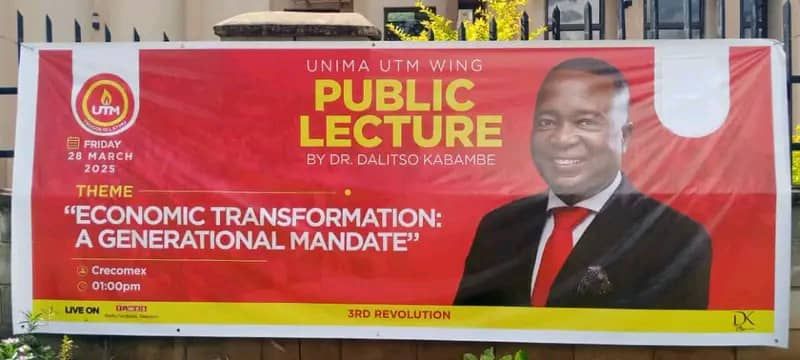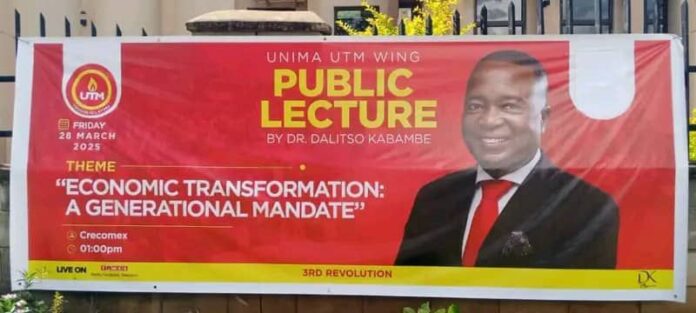By Burnett Munthali
UTM president Dr. Dalitso Kabambe delivered a public lecture in Zomba on Friday, 28 March 2025, targeting the party’s wing at the University of Malawi (UNIMA).
The lecture was aimed at engaging university students and young intellectuals on the pressing issue of economic transformation in Malawi.
The event took place at Crecomex Hall in Zomba City, providing a platform for discussion on key economic challenges and potential solutions.

The theme of the lecture, “Economic Transformation: A Generational Mandate,” highlighted the responsibility of the current generation in driving sustainable economic development.
Dr. Kabambe elaborated on the importance of structural economic reforms that could stimulate growth, reduce poverty, and enhance job creation.
He emphasized that for Malawi to achieve long-term economic stability, there is a need for innovative policies that encourage investment and industrialization.
The UTM leader also touched on the role of young people in shaping the future of the country’s economy, stressing the need for academic excellence, entrepreneurship, and leadership.
During his address, Dr. Kabambe criticized existing economic policies that have failed to deliver meaningful development, arguing that bold decisions must be made to change the status quo.
He highlighted sectors such as agriculture, mining, tourism, and technology as key areas that require significant investment and policy reformation.
The lecture also addressed issues of corruption, poor governance, and inefficient public service delivery, which Dr. Kabambe cited as major obstacles to economic progress.
Students and other attendees had an opportunity to engage with the UTM leader, raising questions and contributing ideas on how economic transformation can be achieved.
Many participants commended Dr. Kabambe for initiating such discussions, noting that young people must be actively involved in national development conversations.
The public lecture is part of UTM’s broader strategy to connect with the youth and intellectual community, positioning itself as a party that prioritizes policy-driven leadership.
As the 2025 elections approach, Dr. Kabambe’s engagements with university students may play a crucial role in shaping political discourse and mobilizing support among young voters.
The impact of his message on economic transformation will be closely watched in the coming months, as political parties outline their development agendas.



